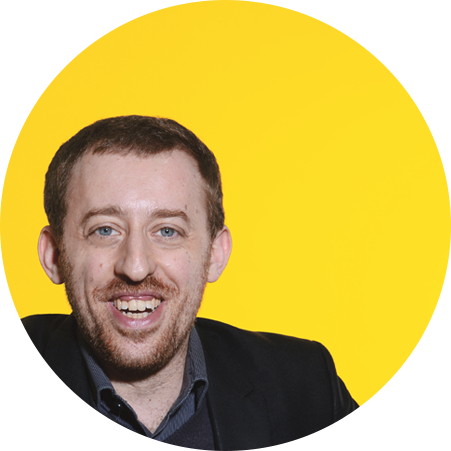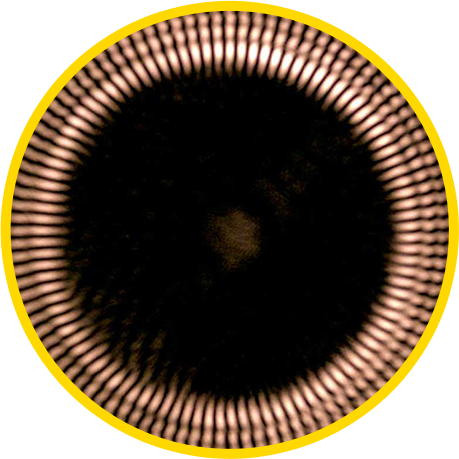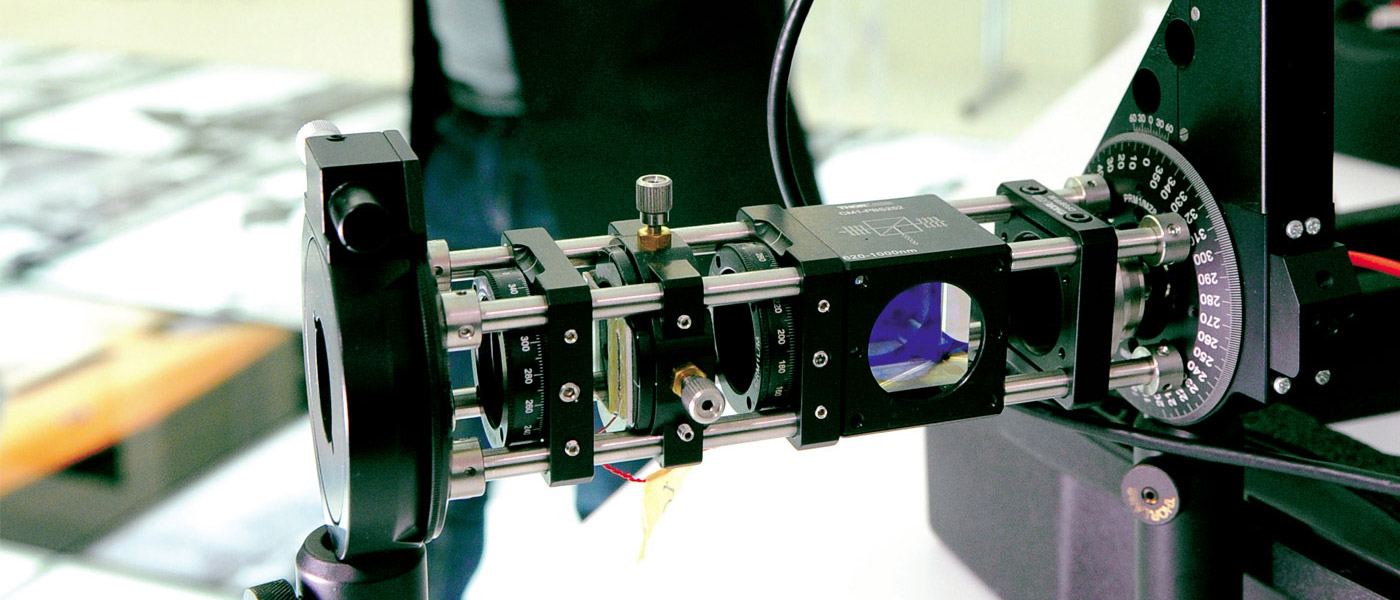
36 years old, Italian
2014: Prize Sapio Junior per la Ricerca italiana – XIV Edition 2014
2011: Prize “Sapienza Ricerca 2011”
2011: Under 40 Premio Fondazione Sapienza
2008: Prize “Medaglia Le Scienze per la Fisica”
2008: Prize “Medaglia della Presidenza della Repubblica”
The photonic gear is a new device: a "wheel of light" able to make the polarisation of light rotate faster. It is based on a novel liquid-crystal device, called the q-plate, which allows for the efficient manipulation of light profiles.
The photonic gear has the potential for industrial applications, as well as for quantum metrology and quantum communication.



Assistant Professor at La Sapienza University in Physics and Junior Fellow at Scuola Superiore di Studi Avanzati Sapienza, Fabio Sciarrino’s research focus is on experimental quantum optics, quantum computation and information, and the foundations of Quantum Mechanics.
His experiments have led to the development of new techniques in his field, and they have also contributed to the understanding of the foundations of quantum mechanics and quantum information theory. He works with optics and ultra-fast lasers to achieve his results.
He also won a prestigious European Research Council Starting Grant for his work in Integrated Quantum Photonics, as well as numerous other grants and fellowships. He is the author of more than 100 publications in international journals (among which ten publications on Nature journals) and about 100 presentations at national and international conferences.
Fabio spends the majority of his time with ultra-fast lasers and optics. He is intense, and highly – fearfully – intelligent and he has a keen sense of the makeup of the world; seeing things that the rest of us don’t or can’t.
He doesn’t just envisage the wheel, he goes past that to see what’s going on inside, somewhere in the hazy world of sub-particles. He answers not just the question ‘how’ but ‘why’. I thought it was a wonderful idea to invite such an outspoken and perspicacious person to the event.
His presentation was a radiant light display, configuring the pulses of laser beams into the twisting and turning shape of a wheel, using the quantum to represent something mechanical. In turn he turned a scientific instrument in a kind of paintbrush.
Like art, he said, science proceeds by hunches and guesses, it tests the water and pushes into the unknown, on a trial by trial basis.
He taught us that there is no strict divide between art and science, as is too often assumed, and how they are perceived from the outside.
Both attempt to find meaning and knowledge through guess work, and great developments or masterpieces issue occasionally from a plethora of mistakes and errors. He reminded us that both disciplines are processes, and accretive. It was wonderful to spend time with someone so talented in a specific field, but to have an over-arching out look that seemed to encompass everything: artistic, scientific, existential and ontological.
[Hanif Kureishi]
Do you consider your talent a gift or a burden?
I would define talent not as a gift but rather as an opportunity to be exploited and developed.
When you concentrate on one single activity to the point that it becomes almost an obsession in order to pursue your talent, that “gift” can become a constraint in life.
What you would do if one day you woke up and discovered you had lost your talent?
I’d have to invent a different life for myself. In a way it could be very stimulating... like a new challenge: I’d look to the world of economics or politics for example!
Who is the living talent you most admire?
I find it difficult to single out just one… the candidates range from political or sporting personalities to men and women of culture and obviously scientists.
I’ve been lucky enough to get to know Alain Aspect and Serge Haroche, two physicists who have contributed to fundamental quantum physics and I was very impressed by both their professional and human attributes.
What do you like about your talent and what don’t you like?
Honestly I wouldn’t say that I had talent.
I would call it a great passion for research. It’s a kind of addiction that makes me constantly think of new ideas and solutions.
It’s hard to keep it under control, but life is also about affection, friendship and other interests.
When or where does your talent make you happy?
There are a lot of moments I remember with happiness.
One of the greatest satisfactions I have ever experienced was winning a very prestigious European project, well financed by the European Research Council.
If you could change your talent, how you would change it?
I’m not sure... it’s fine just the way it is: with its pros and cons!